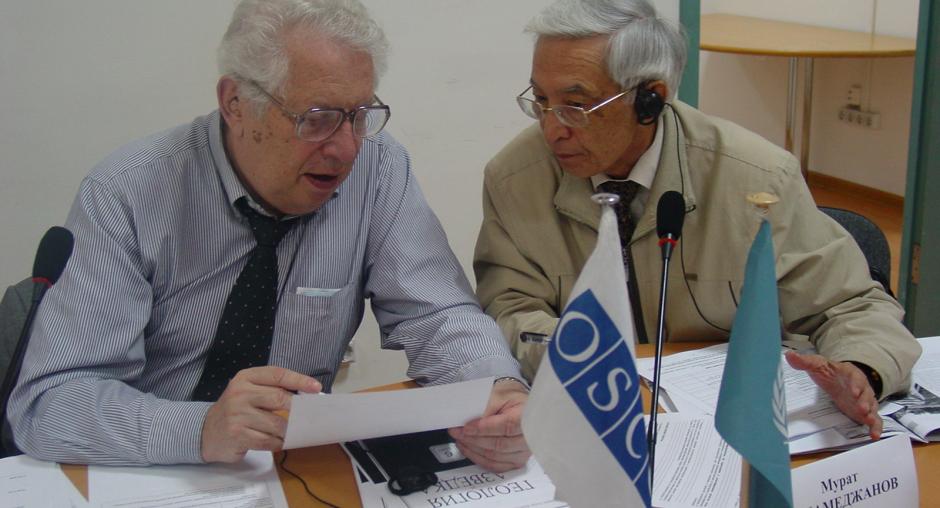OSCE supports discussions to improve management of transboundary groundwaters

ALMATY, 28 May 2009 - A workshop on groundwater management organized by the OSCE Centre in Astana and the United Nations Education, Scientific and Cultural Organization (UNESCO) Cluster Office in Almaty ended today in Almaty.
The two-day training course, attended by 30 experts from Central Asia and the Caucasus addressed challenges with the assessment and management of transboundary aquifers. Insufficient knowledge and a lack of co-ordinated management can lead to changes in groundwater flow, levels and volume, and to increased levels of pollution.
"Supporting efficient management of transboundary aquifers is a priority for the OSCE as water shortages and poor water quality represent threats to national and regional security," said Ambassador Alexander Keltchewsky, the Head of the OSCE Centre in Astana. "The main source of drinking water in the region is groundwater, which should be managed in accordance with international standards and requirements."
"Co-operation and exchange of information among States sharing an aquifer is a prerequisite for adequate assessment of transboundary aquifers and their sound management," said Tarja Virtanen, the Head of UNESCO Almaty Cluster Office.
Workshop participants identified new activities to improve transboundary aquifer management in the regions. They also reviewed information on transboundary groundwaters in Central Asia and the Caucasus that was collected at the first workshop, held in 2007.
The resulting data is expected to be included in UNESCO's world inventory of transboundary groundwaters, as well as in the UN Economic Commission for Europe's assessment of transboundary waters in its region, and will serve as a guidance tool for improved water management.
